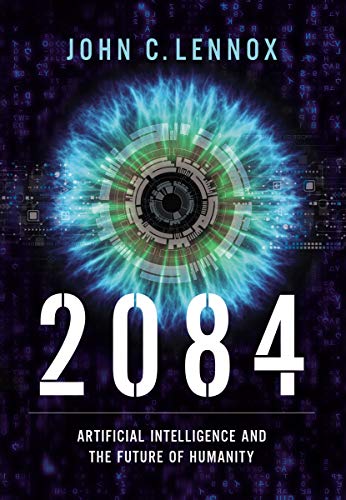A Brief Book Summary from Books At a Glance
By Benjamin J. Montoya
About the Author
John C. Lennox (PhD, DPhil, DSc) is Professor of Mathematics in the University of Oxford, Fellow in Mathematics and the Philosophy of Science, and Pastoral Advisor at Green Templeton College, Oxford. He is author of God’s Undertaker: Has Science Buried God? on the interface between science, philosophy, and theology. He lectures extensively in North America and in Eastern and Western Europe on mathematics, the philosophy of science, and the intellectual defense of Christianity, and he has publicly debated New Atheists Richard Dawkins and Christopher Hitchens. John is married to Sally; they have three grown children and four grandchildren and live near Oxford.
Introduction
Discussions of Artificial Intelligence (AI) abound. But many of these discussions come from the perspective of atheism. What does Christianity have to say about this larger issue and all the complicated philosophical and ethical questions that accompany it? Consider this important and insightful book to learn more!
Table of Contents
Chapter 1 Mapping Out the Territory
Chapter 2 First Big Question: Where Do We Come From?
Chapter 3 Second Big Question: Where Are We Going?
Chapter 4 Narrow Artificial Intelligence: The Future Is Bright?
Chapter 5 Narrow AI: Perhaps the Future Is Not So Bright After All?
Chapter 6 Upgrading Humans
Chapter 7 Artificial General Intelligence: The Future Is Dark?
Chapter 8 The Genesis Files: What Is a Human Being?
Chapter 9 The Origin of the Human Moral Sense
Chapter 10 The True Homo Deus
Chapter 11 Future Shock: The Return of the Man Who Is God
Chapter 12 Homo Deus in the Book of Revelation
Chapter 13 The Time of the End
Summary
Chapter 1: Mapping Out the Territory
The title of this book builds upon George Orwell’s 1984. But this book is not intended to be quite the same thing. Instead, this book intends to address some of the issues Orwell predicted might come about as AI improves. For example, Orwell spoke of a society in which everyone everywhere was constantly monitored. Although that is not legal in many countries, with the rise of more and more AI, this is a real concern.
AI was a word coined in 1956 to refer to the science and engineering of intelligent machines. Although there is plenty of room for growth and development for AI, AI is something that is already used, especially in calculations. For example, Amazon uses an algorithm to predict what you might be interested in buying based on previous purchases, what you look at on their website, and what others like you would purchase to determine what to advertise on your screen.
AI, however, presents us with much larger philosophical questions to which this book will now turn its attention.
Chapter 2: First Big Question: Where Do We Come From?
One of the biggest questions that people ask and at least try to answer in this life is, “Where do we come from?” Although the question seems simple, it is far from it! In fact, although many scientists have proposed answers, the ultimate answer that science can give based on their methodologies is,
[To continue reading this summary, please see below....]We synthetic chemists should state the obvious. The appearance of life on earth is a mystery. We are nowhere near solving this problem. The proposals offered thus far to explain life’s origin make no scientific sense.
The remainder of this article is premium content. Become a member to continue reading.
Already have an account? Sign In
